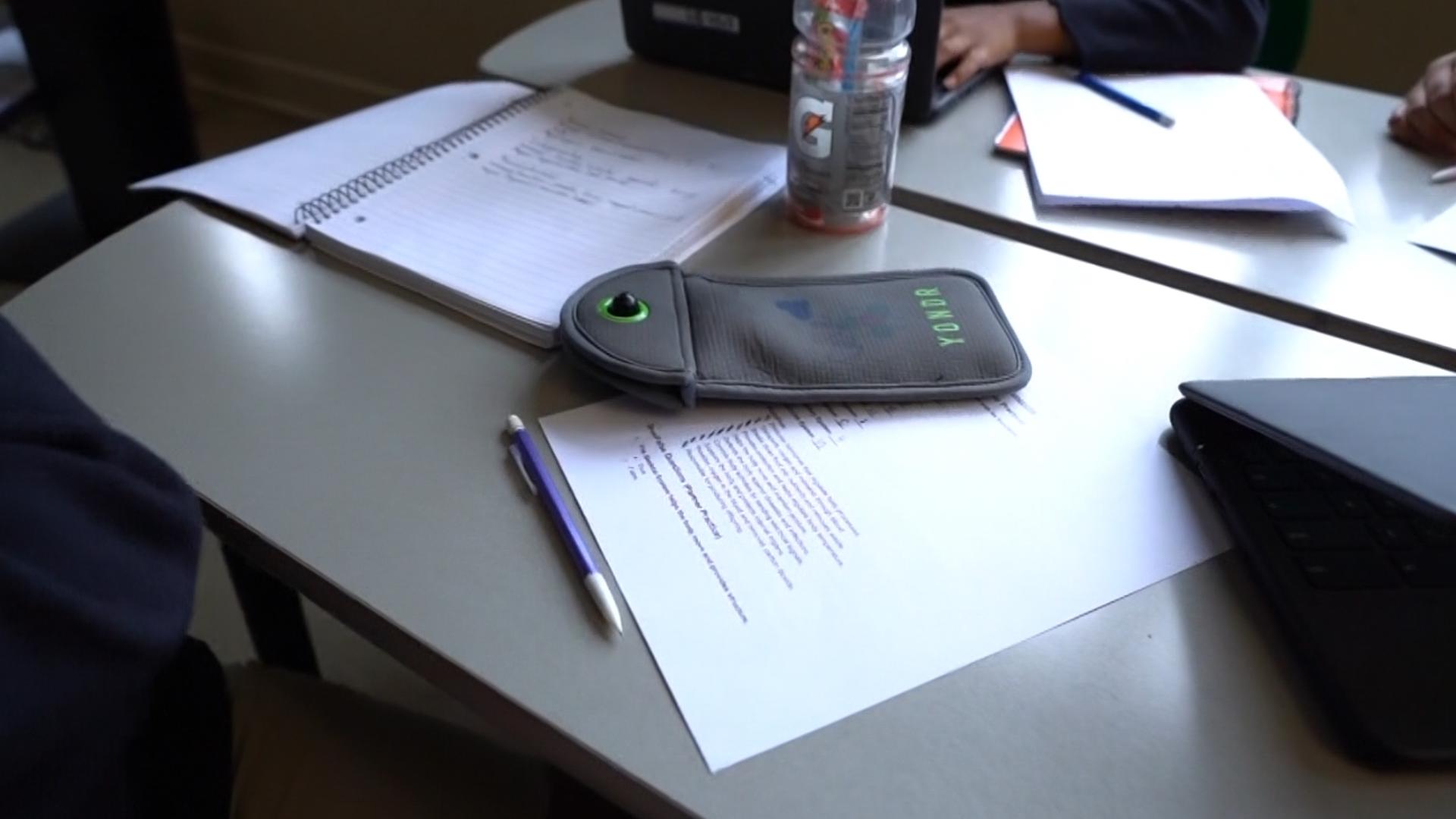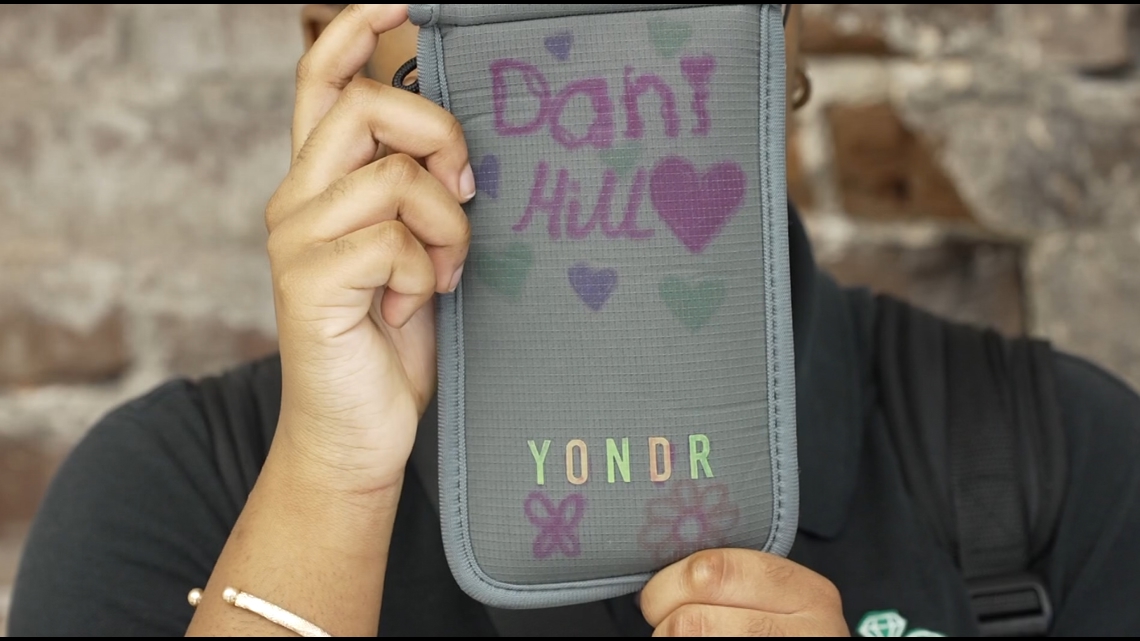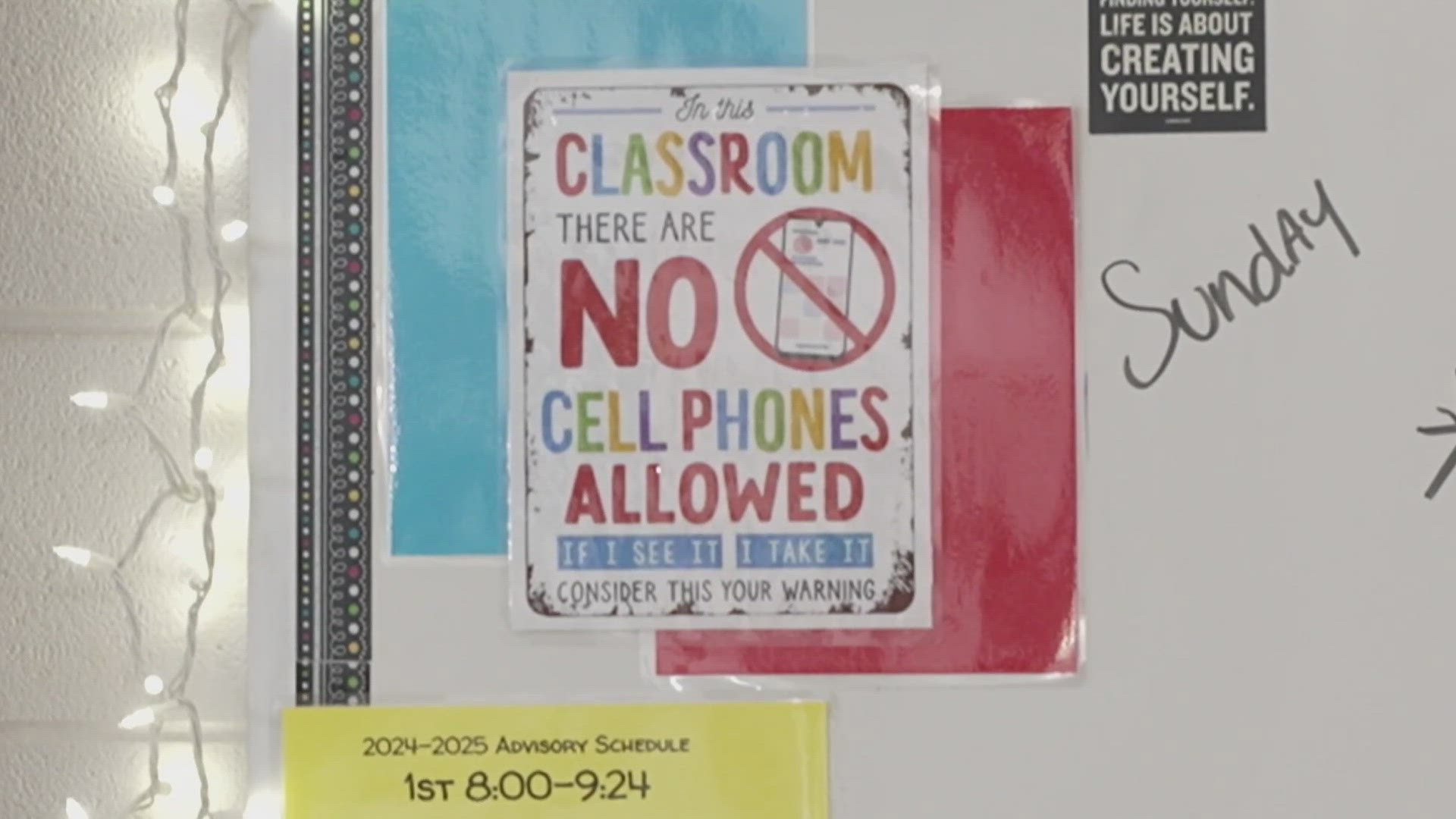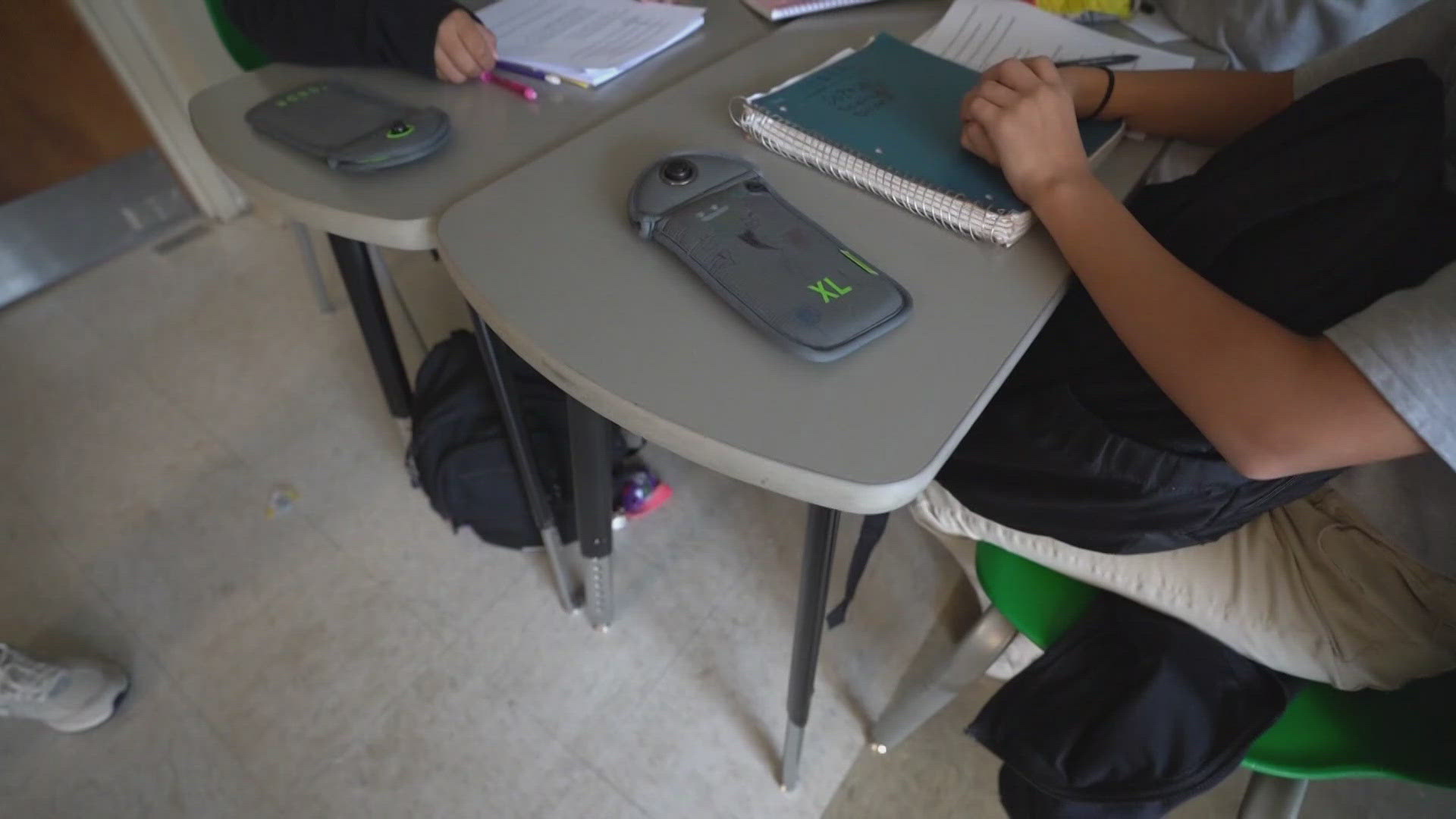Some local schools are banning personal electronic devices. Here's why
Tennessee doesn't currently have a state-wide ban in place, however, two local schools have taken the initiative and say it's paying off big time.
WBIR

Growing evidence suggests phones impact students' learning and mental health. In a recent Pew Research Poll, a majority of high school teachers say they're a significant problem in the classroom.
However, parents have expressed concern about being unable to reach their children during an emergency if phones are banned.
While a bill in the Tennessee legislature failed earlier this year, it hasn't stopped some school districts from restricting or placing all-out bans on personal electronic devices.
Morristown-Hamblen West High School
At Morristown-Hamblen West High School, all students are banned from using electronic devices during the school day.
"We call it our personal communication device policy. It goes much further than just a cell phone," Hamblen County Schools superintendent Arnold Bunch said.
The policy applies to other devices like Airpods and smartwatches. When students enter the school, their devices must be turned off and inside their bags.
Bunch said the district hit a tipping point earlier this year.
"We had bullying that was being done over the phone. We would have interruptions while [students] were in class," Bunch said. "We had fights that would be instigated by the phones and we had false threats."
The four-star Air Force general turned school superintendent made it his mission early in the year to inform and educate students, parents and citizens about his proposal to ban all electronic devices.
"I went on a full month-long—what I would call—a communication campaign. I sent notes to all the parents and posted things on our website with parents to read as to why we were going down this path," Bunch said.
Bunch did experience pushback, but not much. "We are a little less than 3,000 [students] in our classrooms, I got 19 emails."
The Hamblen County School Board passed the new policy in April, with the ban immediately taking effect the next day.
"We felt if it was important enough to change our board policy to put the rule in place, we would go ahead and implement it." Bunch said. "I’ve had some leaders say we need a new law—something from Nashville. The reality is, if you have board support and you are willing to go at this you can do this on your own, you don’t really need a new law."
Months after the implementation of the new policy, it has begun to win praise from staff, teachers and even students.
"We’ve had multiple kids say, 'This is not that bad. This is kind of nice not to have to worry about my phone,'" teacher Lindsey David said.
Another teacher, Laura Singleton, said it was world-changing for teachers and also a very abrupt change.
"Within a month our whole staff had a different morale about them because it was one less battle we were constantly having to fight," Singleton said.
Most agree the new policy was a win.
Now that the apps are closed, the books are open and the heads are up and alert.
"I measure success really pretty simply. I go into the cafeteria—it’s louder. Kids are not at the table next to each other texting each other," Bunch said. "They are actually looking each other in the eye and talking to each other."
Emerald Academy
At Emerald Academy, dismissal after the school day is a loud affair—but don't expect teachers to shush students as they exit the classrooms. This is exactly what they hoped for.
Before the students file out for the day, they make a beeline for nearby magnets to unlock pouches that have kept them from accessing their phones, Air Pods and smartwatches during the school day.
The academy banned personal electronics in July when students returned from summer break, with Emerald Academy Director Carlissa Weeks saying it was time to act.
"We had incidences of scholars being in the bathroom making TikToks, so they were missing instructional time because they were playing on their phones in the bathroom," Weeks said. "Out of the eight to 10 [incidents] that we maybe had last year, 80% to 90% of them had to do with cell phones. There was some bullying, sending pictures around of people that shouldn’t have been mass distributed."
With the consent of the academy's board, school leaders bought more than 250 Yondr pouches. Students place their personal devices in the pouches and they are magnetically closed shut. The school also bought half a dozen unlocking bases, bringing the price tag up to $6,000.
According to Weeks, there was little pushback from parents but some did express concerns about contacting their children in the event of an emergency.
"My response to that was every single one of our classrooms has not one phone, but pretty much two that they can call out of," Weeks said.
One science teacher at the academy, Michelle Cutlan, said she would always carry her personal phone. However, just three months into the ban, she said the impact is obvious.
"The biggest differences are student engagement, for sure. When you don’t have your phone distracting you, you’re not hurrying to get your work done so you can check your phone. You’re not leaving the class to go to the bathroom or go to the nurse trying to get out of the classroom so you can check it," Cutlan said.
Eighth-grader Danielle Hill admitted to experiencing separation anxiety when the policy was first implemented, but she noticed the positives—better grades and better mental health.
"Especially social media—you can feel sometimes isolated or not as worthy as somebody would see on a screen so I feel like taking that away for a couple of hours in the school day makes it better than having access to your phone all day," Hill said.


Laverne Thompson is the grandmother of two students at Emerald Academy. She was shocked when her granddaughter decided to not bring her phone to school. She told her grandmother there was no point since they didn't have access to them anyway.
"You hear laughter in the hallway, during lunchtime in the cafeteria," said Cutlan. "It’s so loud they are engaged with each other and it’s great to hear and see."
How do you feel?
We want to know how you feel about cell phones or other personal electronic devices being banned in schools.
Fill out the survey below to share your thoughts with us.


